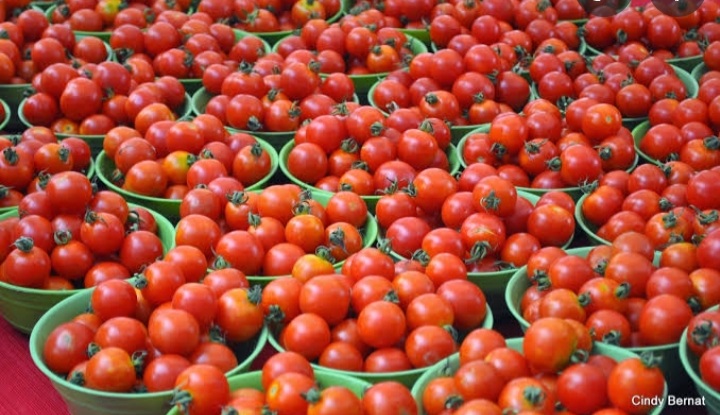How to boost your Tomato produce amidst soaring prices

By Obiabin Onukwugha
Recently, the prices of tomatoes has soared in Nigeria so that it has become difficult for households to add enough of it to their stew and sauces.
The Minister of Agriculture, Mohammad Abubakar, attributed the increase in prices to a severe infestation known as Tomato Ebola or Tomato Leaf Miner, caused by a moth-like insect.
Having tomatoes in your garden, farms or backyard can be a great deal for saving you some expenses as many now turn to agriculture to solve their food problems.
Tomatoes need to be fed with more nutrients compared to other crops to produce fruit, but you can easily give your tomato plants a boost without getting to spend much.
A Tanzanian farmer shared that using banana peels as a feed will help tomatoes grow bigger and stronger.
Banana peels are rich in potassium, an important nutrient that plays a critical role in fruit production and can result in a bigger crop yield.
Jim said: “Banana peels have become a popular garden fertiliser because they are readily available and one of the highest natural sources of potassium.
“Potassium is essential because it aids in photosynthesis, helps move water and nutrients between cells, helps with flowering, and strengthens the stem.
“Banana peels also contain other important nutrients like calcium, manganese, sodium, magnesium, and sulfur.”
Calcium helps prevent blossom end rot, a common disease in tomatoes which can cause it to develop poorly while magnesium helps improve the overall plant’s health.
Simply collect several banana peels and store them in a container in your kitchen, and once you have enough chop them up into pieces.
Dig a hole a few inches away from a tomato plant, add the banana peels and then fill in the hole.
For young tomato plants only feed one banana peel per plant but for established tomato plants you can feed them two to three banana peels per plant.
Bury banana peels around every four to six weeks during the tomato plant’s growing season but you can also adjust the frequency depending on the soil quality and how the plant responds to the new fertiliser.
